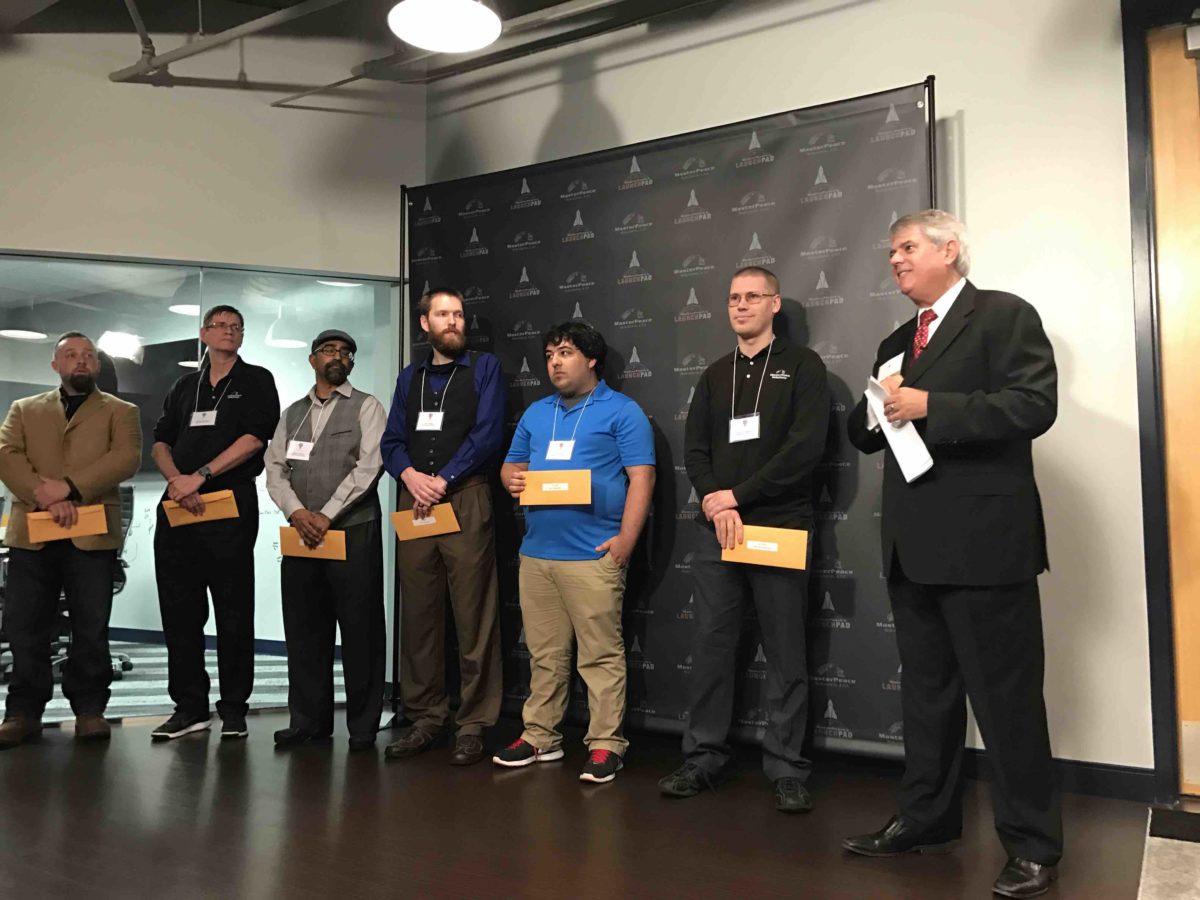With an accelerator inside its walls, Columbia-based cyber company MasterPeace Solutions is spinning out new products.
The company is among many in Maryland who employ technologists working on problems with the government. In launching MasterPeace Launchpad two years ago, the company looked to introduce the principles that drove high-growth startups in the private sector. As CEO Drew Cohen has explained, it’s an effort to harness the cybersecurity talent for which Maryland is well-known and direct it toward commercial growth. MasterPeace encourages its technologists to form new companies, providing space and resources. This year, the company added to the team as it hired Bill Olsen as director of operations for the accelerator.
A recent demo day that provided a look at the companies working out of MasterPeace LaunchPad put some of the work being done on display, complete with pitches and a video message from Lean Startup originator Steve Blank. Collectively, the teams showed that the spirit of solving problems and exploring new technology remains, even if the customer changes.
Showing there’s state and local government interest in the effort and its potential to create new business, Maryland Lt. Gov. Boyd Rutherford and recently-elected Howard County Executive Calvin Ball attended and spoke at the event.
One of the companies came out of stealth mode at the event. Yikes! seeks to protect networks within homes and small businesses from potential threats that originate outside the network. Cohen said the company is working to bring the same level of security found in the enterprise to the smaller networks. They’re seeing an increasing number of devices being connected, whether it’s an appliance or the phones and computers of visitors to a home. If one machine or device becomes infected, it can spread to others, so the company’s technology looks to use a device’s unique ID and build rules that will protect the network, Cohen said. The team is also working on an open source project with NIST that brings together device manufacturers, network security companies and network administrators.
The companies are also exploring emerging technologies. FactChain uses blockchain to secure business transactions. A team that formed called Uplift created “a platform to convert existing legacy web-based applications to serverless,” Cohen said.
The companies, which are made up of teams of about 4-6 people, have made progress. Zuul raised $300,000 earlier this year, and refined a focus on securing the connected devices used by public transportation systems. The companies also each have a team of advisors. Like many startups, the teams that formed spent their initial time building a product. But the importance of talking to customers and doing the other things that are key to building a business are stressed throughout.
“Now we’re in the go-to-market strategy and pilot phase for these companies,” Cohen said.
Join the conversation!
Find news, events, jobs and people who share your interests on Technical.ly's open community Slack

Baltimore daily roundup: Medtech made in Baltimore; Sen. Sanders visits Morgan State; Humane Ai review debate

Baltimore daily roundup: The city's new esports lab; a conference in Wilmington; GBC reports $4B of economic activity

Baltimore daily roundup: Find your next coworking space; sea turtle legislation; Dali raided and sued


